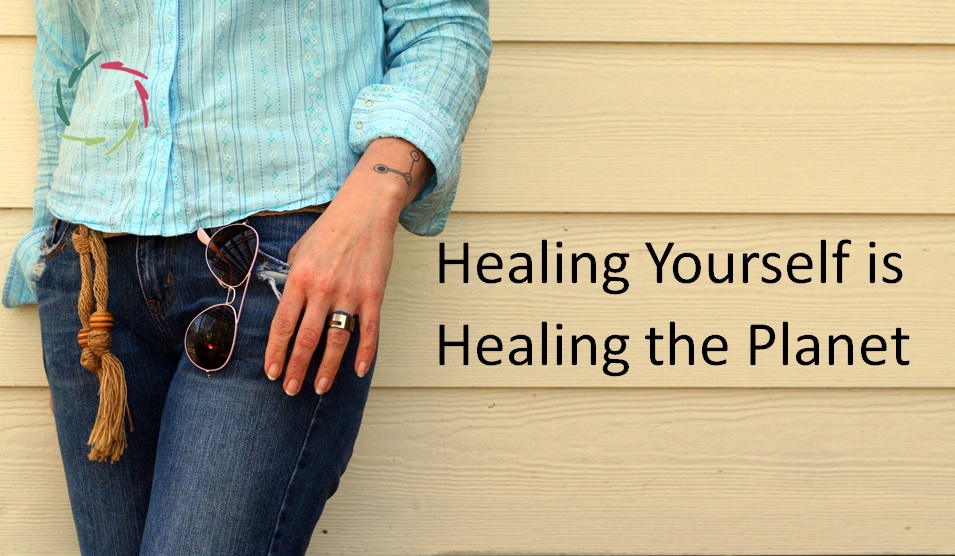Feeling Better or Being Better

Do you want to work on feeling better in this world, or rather feeling OK in a better world?
This is a moral choice
A better world is a world of better persons, including you.
It’s not a world, of course, in which you necessarily feel worse. Still, you might even consciously choose for such. This is called ‘self-sacrifice’. A solder might do so during wartime. A normal person might do so during normal time. It happens.
At the other side, people who want to ‘grab the good feeling / wellness / happiness’ are frequently rather pushing it away from them, unwillingly.
(Sub)conceptuality
This is a paradox which – according to me – mostly starts with a disrespect towards the distinction conceptual >< subconceptual.
The reverse side of this paradox again: not wanting to ‘grab the good feelings etc.’ does frequently result in attaining the good feelings, even the happiness… spontaneously.
‘Spontaneous’ may sound to many like ‘by itself’, in a rather mechanistic sense.
This confusion starts – again – with looking at human being as a whole in a mechanistic way.
A spontaneous response is not at all like a straightforward mechanism. There’s a lot that can push you in one direction or another. A lot of invitation. Say: auto-suggestion. It’s what AURELIS is about.
Very carefully
Sure, many utopian endeavors have led to dismal consequences. Is this ‘utopian endeavor’ that I kind of summon towards, any different?
First of all: keep being careful.
According to me, the main point of difference lies in a change from outside versus change from inside (real ‘growth’). [see: ‘Growth to Happiness’]
The problem of the West
I see many endeavors strand in the trying-to-change-from-outside mode. Especially Western thinking has a long history of this, which cannot easily be ‘changed from inside’.
For a starters, it’s precisely this change from inside that is difficult within this thinking itself.
This leads to an almost insurmountable problem at individual level.
People are sandwiched in a ‘double resistance’:
- Change from outside is resisted by being human: an organism, not a mechanism. A healthy organism grows from inside. A mechanistic change from outside is always a diminishment of this natural growth. In the worst case, it makes the organism ill or damaged.
- Change from inside is resisted by culture. Thus, little exists to really support this. In many cases, the best one can hope is that not too much is being done to stop the real growth.
For instance: motivation at school
We have a schooling system that rather de-motivates than it really motivates children. “But there are still quite a lot of motivated children,” you might say. Yes, happily. I see two reasons: 1) natural motivation is so huge that even a small part of it can still be substantial; 2) individuals (teachers in this case) may step outside of the mainstream to give children what they really need.
The problem in 2) is that these teachers have more and more chances to run into trouble, through a system that increasingly closes the gates in an urge to ‘rationalize’. Between brackets, since it’s hardly rational to ‘rationalize’ without appropriately taking depth into account. This happens now.
Another instance: present-day medicine
Sure: there’s a lot of good stuff. In psycho-somatics however, change from outside leads to lots and lots of dismal consequences. The utopia (rather ‘dystopia’) here lies in the idea that psycho-somatics fits in the mechanistic, dualistic view upon human being.
ONLY transcending this will lead to the (even much) better world we all deserve.
So, the choice is really between ‘feeling better or being better.’
Now, of course, you might ask this Mr. AURELIS (you mean: me) what he means with ‘being better’?
Indeed. I have an answer. I even have two:
- At a more formal level, the ‘better person’ is the one who strives for maximum rationality and poetry or ‘depth’ [see: ‘AURELIS USP: ‘100% Rationality, 100% Depth’]. Since neither of both can ever be fully attained, the striving remains.
- At a level below, closer to life and at the same time more personal (to me), I refer to [see: ‘Five Aurelian Values’]. I like the combination of these already for a long time. That blog text is an invitation to think about them together in one synthesis, also being fully present in any one of them individually. Well, anyway, someone else may have another interesting combination.
The more formal level is unconditional.
So, feeling better or being better, that’s the (first) question (but not the last).


